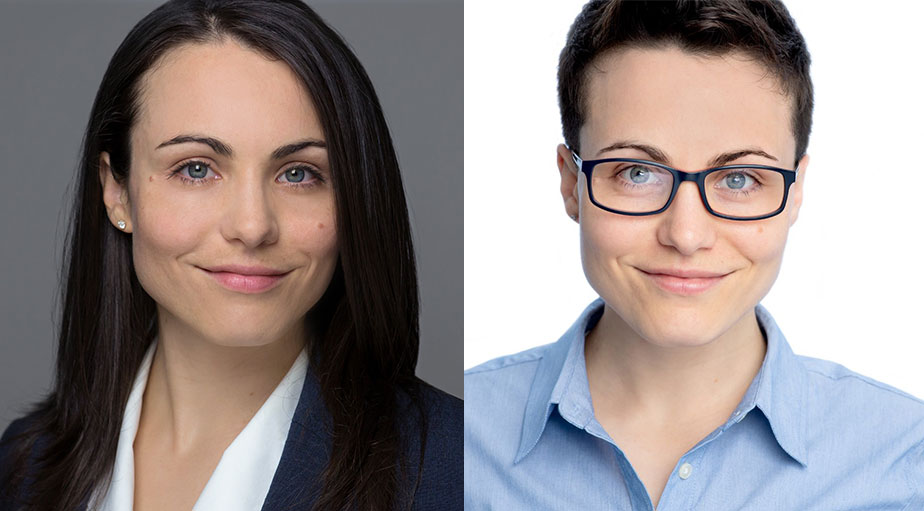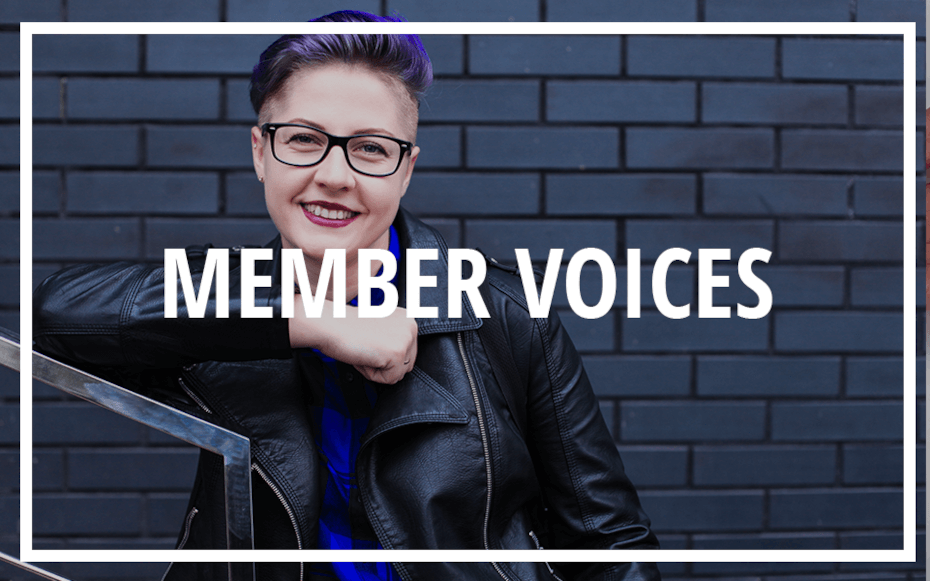It was a cool April afternoon in Port Jefferson, New York when I visited a new stylist for what some have termed “the big chop.” The time had come for me to present as my authentic self in all spaces. Cutting my hair was the first step in living openly, as I did as a child before I gave in to the pressures to conform to the false gender binary.
I was excited for this change, to get closer to seeing myself in my reflection and letting others see me. As I sat in the salon chair, I joked with my new stylist and we bonded over our shared appreciation for “masculine” shoes. We referenced our younger years and the ways in which we had each bucked dominant gender expectations and how our desire to be ourselves impacted our career choices as I started my new journey toward authenticity.
While happy about my decision and what was to unfold, I was acutely aware that my life and my career would change as a result of my haircut. With every lock of hair that fell away, so did elements of my cis-privilege. Privilege that had allowed me to maneuver through life without my gender identity being highlighted, challenged, or oppressed for noncompliance to false binary norms. Privilege that had afforded me the ability to navigate job interviews, promotions, and my day-to-day work without a focus on my physical expression of gender identity or the burdens of cis-fragility. Privilege that kept me safe in certain situations and in certain environments. Privilege that allowed others to read and categorize my existence in an easily digestible format. Privilege that came at the cost of covering – living within the limits of others’ expectations and fear of the consequences that accompany nonadherence to oppressive norms. On April 22, 2019, I exchanged that privilege for liberation and authenticity, but it came at cost not all are willing to pay.

After I traded in my long, wavey (but most often straightened) hair for a short, simple fade, I was immediately met with commentary on my new look – most of which was positive and supportive, especially within my team. However, there were some who expressed displeasure in my decision to live more authentically. The week I cut my hair, I was met with infantilizing criticism from a professor who mentioned that his adult daughter recently cut her hair like mine, and his wife was upset because “now, she looks like a boy.”
His words pierced as I prepared copies for an upcoming workshop. It was an all-too-familiar tactic to undermine gender diverse individuals by attempting to strip them of their maturity and life experience through comparison to children who might not possess full awareness of their agency or identities. At that moment, I was tasked with the labor of employing compassion in my response to maintain a cordial working relationship, managing my professionalism, and then decoding the implicit messages attached to his words. Then came the labor of deciding whether to invest the energy in carrying the interaction with me or letting it go.
Shortly thereafter, another faculty member began all-out refusing to acknowledge me in the office – even when I was the only person in the room with him – instead, opting to wait in awkward silence until my supervisor came back from his meetings so he could ask him a question about something for which I was solely responsible. Each moment he chose to stand before me, looking over me and ignoring me while I spoke to him was exhausting and embarrassing. My co-worker witnessed this behavior on several occasions, and though she tried to address the issue with the faculty member, he was persistent in his efforts to ignore me. There have been few professional experiences in my life more degrading than this – especially when my team members were witness to the objection of another human being to acknowledge my humanity.
At first, I attributed these behaviors to the faculty being unfamiliar with queer identities as they aren’t often mentioned on campus or in trainings. However, as time went on and I began uncovering further – wearing more masculine tailored (“women’s”) suits – I noticed others’ behavior escalate. I received more side-eyes from colleagues in the hallways. On more than one occasion, a senior administrator commented to me that I shouldn’t wear suits “like these” because I have a “great, feminine body and 'these’ suits cover it up,” and that I “shouldn’t hide my beautiful figure.” His comments became persistent even after I explained that they were unwelcome and inappropriate, and they did not dissipate until I very sternly asserted my right to work in an environment free of harassing behavior.
While some may categorize these events as minor annoyances, what followed felt, to me, like a more complicated series of peculiarities.
I had been working with employer partners for some time, but after uncovering, some of them seemed less enthusiastic about meeting with me in the office. One appeared to struggle in her attempts to read my gender during a recruiting visit, looking me up and down and from top to bottom, as if she were trying to decipher a mystifying presence. After what felt like an eternity of intense scrutiny of my physical form, the recruiter opted to refuse my help in getting set up on campus. However, shortly afterward, she asked a cis-presenting colleague from my office to help her set up her tables and call the shuttle to another part of campus – the very things with which I offered to assist her earlier.
My experience with this recruiter reminded me of the anxiety of using public restrooms as a child, when I wore my hair short and dressed in what many who subscribe to the false gender binary would deem “boys” clothes. If I used the women’s room without my mother present, I was typically subjected to long stares and people closely scanning my body over in attempts to examine me and “figure me out.” I would also endure scolding or name-calling for using the “wrong” restroom. It was surprising to me that the same anxiety I experienced as a child was now showing up in a professional workplace as an adult.
After the event, I attempted to walk through my concerns with my team, but without any “proof” of ill-intention on the part of the recruiter, we were at a loss for how to address the situation – so nothing was done. I have yet to hear back from this recruiter.
As I more openly uncovered, I noticed more odd looks in the hallways. Occasionally I would hear comments from students about my Oxford shoes – calling attention to how they bucked false binary norms. While many were supportive, others felt less so or disingenuous. In classes and in emails, I was misgendered despite introducing myself with my pronouns, and adding my pronouns to table tents, my email signature, and my Zoom meeting name. Once again, I attributed these situations to a lack of knowledge and resources available to individuals and tried to let go of the baggage associated with internalizing the reactions of others.
Around the same time that I was managing through what felt like a current of microaggressions, I was disinvited to a high-profile external event I coordinated – one for which a faculty admin was sent in my place with only a few hours’ notice. At the time, I tried to brush it off as a staffing issue, but I could not quell the suspicion that someone had decided that my identity expression was not a “fit” for the event environment.
Over time, I also noticed the lack of invitations to women’s events despite never declaring a change in my gender identity. Though there could exist reasons for these changes unrelated to my physical presentation, the fact remains that without clear explanations, and in the context of experienced microaggressions, I cannot definitively know that the lack of inclusion was not directly related to how I physically expressed my gender identity.
While on their own, these may seem like insignificant events, in sum they took a toll on my well-being. I started to doubt whether someone who lives authentically outside of the false gender binary could be successful in career services given the dominant identities that are overrepresented and the oppressive norms that accompany them, the current lack of inclusivity in many career services environments, and the politics of pleasing employers who may not be “progressive.” I started to question whether working in college career services was worth having my career options reduced to a Hobson’s choice based on marginalization related to very core of who I am – dealing with the ugliness in order to do what I love or leaving it all behind to work in a more accepting environment.
To this day, I have not settled on a decision, but thanks in large part to an emotional conversation with the stylist who helped initiate my gender expression journey, for now I will continue to stick around and work to make the changes necessary for members of our profession to be able to show up as themselves with an equitable opportunity to work and live in accordance with their identities.
I share my experience with full awareness of other aspects of my privilege (white, mostly-abled, generally thin, assumed middle-class social status, educated, etc.), and with full awareness that many individuals and individuals with minoritized identities experience worse treatment – many of whom cannot cover because of physical traits, race, or ethnicity. I also share my experience in hopes that we, in career services and higher education more broadly, will do more to make our spaces and campuses inclusive of queer people whose expression of gender does not easily align with the false gender binary. Surely, we can do better to normalize queer identities and diversity in gender identity and expression so that practitioners do not feel as though they must circumscribe in response to the pressures of marginalization.
Perhaps we should engage in discussions around how we can advocate for our queer and gender diverse colleagues and peers in our offices and within our institutions. What can we do to support those who uncover or transition in the workplace? How do we address campus community members who fail to meet our colleagues with respect? How do we address employer partners who do the same? How are we educating ourselves and our colleagues to be more effective in ensuring gender equity in our offices and in our profession at large? These may not be easy conversations, and they will undoubtedly require us to engage in challenging dialogues regarding polices, expectations, and accountability measures. However, we owe it to ourselves and to each other to do the work required to make the changes we wish to see in our field.
Sandra Buatti-Ramos is the internship and career advisor at Vaughn College of Aeronautics and Technology.






